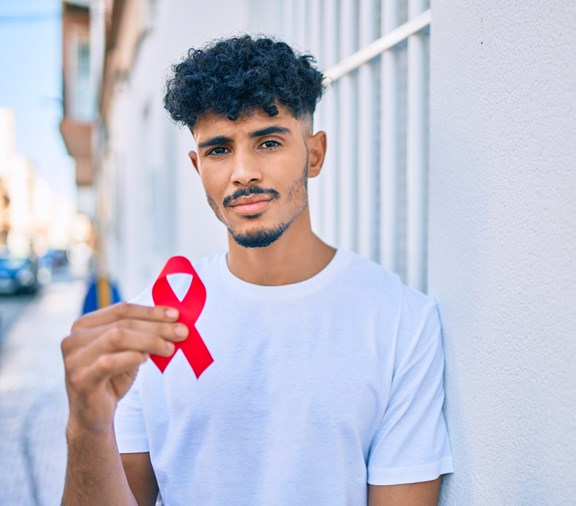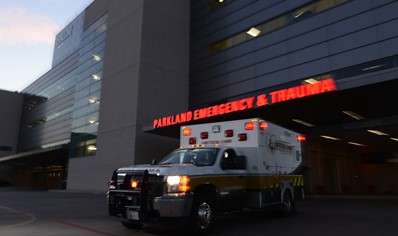
Human Immunodeficiency Virus, more commonly known as HIV, is a virus that attacks cells in the immune system. If untreated, it can lead to acquired immunodeficiency syndrome, or AIDS. AIDS is the final, most advanced stage of HIV.
HIV can be treated. But it must be treated for life. Without treatment, it can lead to life-threatening complications like severe infections and some kinds of cancers.
Signs and Symptoms
If a person is going to have symptoms, they will usually appear within two to four weeks after being infected. They may last a few days or weeks.
Early signs include:
- Fever
- Sore throat
- Rash
- Chills
- Headache
Later signs include:
- Swollen lymph nodes
- Muscle aches
- Night sweats
- Mouth ulcers
- Fatigue
- Weight loss
- Cough
- Diarrhea
Some people will not have any symptoms. Testing is the only way to know if you have HIV.
How does HIV spread?
People typically get HIV through sex, or by sharing needles and syringes during IV drug use. It can also be spread to a child during childbirth. It is NOT spread by day-to-day contact like kissing, hugging, and shaking hands, or by sharing personal objects, food, or water.
Risk Factors
There are certain conditions that increase a person’s risk of getting HIV, including:
- Having anal or vaginal sex without using a condom.
- Having a sexually transmitted infection (STI) such as chlamydia, gonorrhea, herpes, or syphilis.
- Sharing contaminated needles, syringes, and other drug-related equipment.
- Unsafe blood transfusions, injections, or tissue transplants.
- Medical procedures that use unsterile cutting or piercing.
Diagnosis
Rapid tests (with same-day results) are now available to diagnose HIV. Self-tests are also available, but follow-up with a healthcare provider is essential. Additional testing should be done by a trained healthcare provider to ensure an accurate diagnosis. The sooner a person is diagnosed, the faster they can begin treatment.
Prevention
A person can reduce their risk of HIV infection by:
- Using a condom during sex.
- Getting tested for HIV and other STIs.
- Getting circumcised.
- Learning about harm reduction services for those who use and inject drugs.
- Taking a preventive medication such as PrEP.
Treatment
There is no cure for HIV. However, treatment can reduce the amount of HIV a person has in their body. With early detection, the infection can be under control in six months.
There are many treatment options available now. With treatment, a person can reach a level that prevents them from transmitting the virus to others. A person on treatment must take their medicine just as prescribed for it to work as effectively as possible.
Parkland Community Health Plan’s care management program helps members understand and control complex health conditions. Care managers can help you:
- Learn about your healthcare.
- Work with your primary care provider (PCP) when medical questions come up.
- Plan your care with a medical team (your PCP, family, or specialists).
- Schedule rides to appointments.
- Get special equipment and home health services if you need them.
For more information, call PCHP Member Services at 1-888-672-2277.



